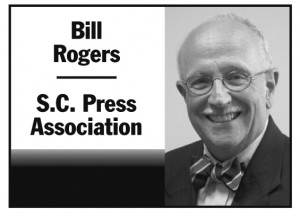Supreme Court autopsy ruling trumps public accountability
 For the second time in a month, the S.C. Supreme Court has ruled against openness and punted important issues back to the Legislature for change.
For the second time in a month, the S.C. Supreme Court has ruled against openness and punted important issues back to the Legislature for change.
Last week, the court ruled that autopsy records are exempt from release under the FOIA because they are medical records.
Why does this matter to the public?
It matters because the next time police shoot an innocent man, don’t expect the public to have access to the autopsy report giving the details of the death.
That is what this case was about… the shooting of an innocent suspect. Supposedly in self-defense. Problem is, the autopsy showed the suspect in Sumter County was shot in the back.
Can you see now why autopsy records should be public?
This is a terrible ruling that will allow coroners to withhold information the public has a need to know.
This case was really about public oversight, and the public lost.
The public also lost a few weeks ago when the high court ruled that not only could public bodies change meeting agendas at the last minute without notifying the public, but that agendas for public meetings were not even required.
I’m not a lawyer, but I’ve got enough sense to read this part of the FOIA: “All public bodies shall notify persons or organizations, local news media, or such other news media as may request notification of the times, dates, places and agenda of all public meetings…”
Pretty clear to a layman. But the court chose to focus on the wording for notification of regularly scheduled meetings at the beginning of the calendar year, where the wording said that notice must include the agenda, “if any.” If you announce a meeting to be held in October at the start of the calendar year, I can’t imagine having a meaningful agenda prepared. The law made it clear later that agendas must be available 24 hours in advance.
Why is this a problem for the public?
Because you won’t know what your councils or school boards will be discussing, so you won’t be able to participate in the discussion.
These rulings send us back to secret government.
Sure, the Legislature can fix this. But will they? For the last two years, efforts at FOIA reform have failed.
It will fail again if the public and the media don’t demand FOIA and ethics reform.
Bill Rogers is executive director of the S.C. Press Association, the trade group for South Carolina’s 110 newspapers.



























